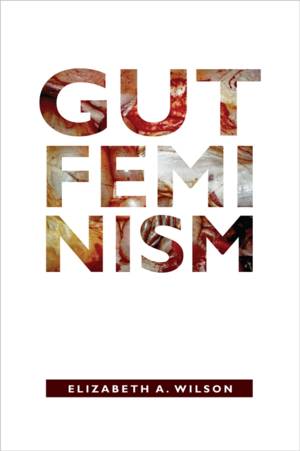
- Afhalen na 1 uur in een winkel met voorraad
- Gratis thuislevering in België vanaf € 30
- Ruim aanbod met 7 miljoen producten
- Afhalen na 1 uur in een winkel met voorraad
- Gratis thuislevering in België vanaf € 30
- Ruim aanbod met 7 miljoen producten
Zoeken
€ 165,95
+ 331 punten
Uitvoering
Omschrijving
In Gut Feminism Elizabeth A. Wilson urges feminists to rethink their resistance to biological and pharmaceutical data. Turning her attention to the gut and depression, she asks what conceptual and methodological innovations become possible when feminist theory isn't so instinctively antibiological. She examines research on anti-depressants, placebos, transference, phantasy, eating disorders and suicidality with two goals in mind: to show how pharmaceutical data can be useful for feminist theory, and to address the necessary role of aggression in feminist politics. Gut Feminism's provocative challenge to feminist theory is that it would be more powerful if it could attend to biological data and tolerate its own capacity for harm.
Specificaties
Betrokkenen
- Auteur(s):
- Uitgeverij:
Inhoud
- Aantal bladzijden:
- 240
- Taal:
- Engels
- Reeks:
Eigenschappen
- Productcode (EAN):
- 9780822359517
- Verschijningsdatum:
- 4/09/2015
- Uitvoering:
- Hardcover
- Formaat:
- Genaaid
- Afmetingen:
- 157 mm x 234 mm
- Gewicht:
- 430 g

Alleen bij Standaard Boekhandel
+ 331 punten op je klantenkaart van Standaard Boekhandel
Beoordelingen
We publiceren alleen reviews die voldoen aan de voorwaarden voor reviews. Bekijk onze voorwaarden voor reviews.











